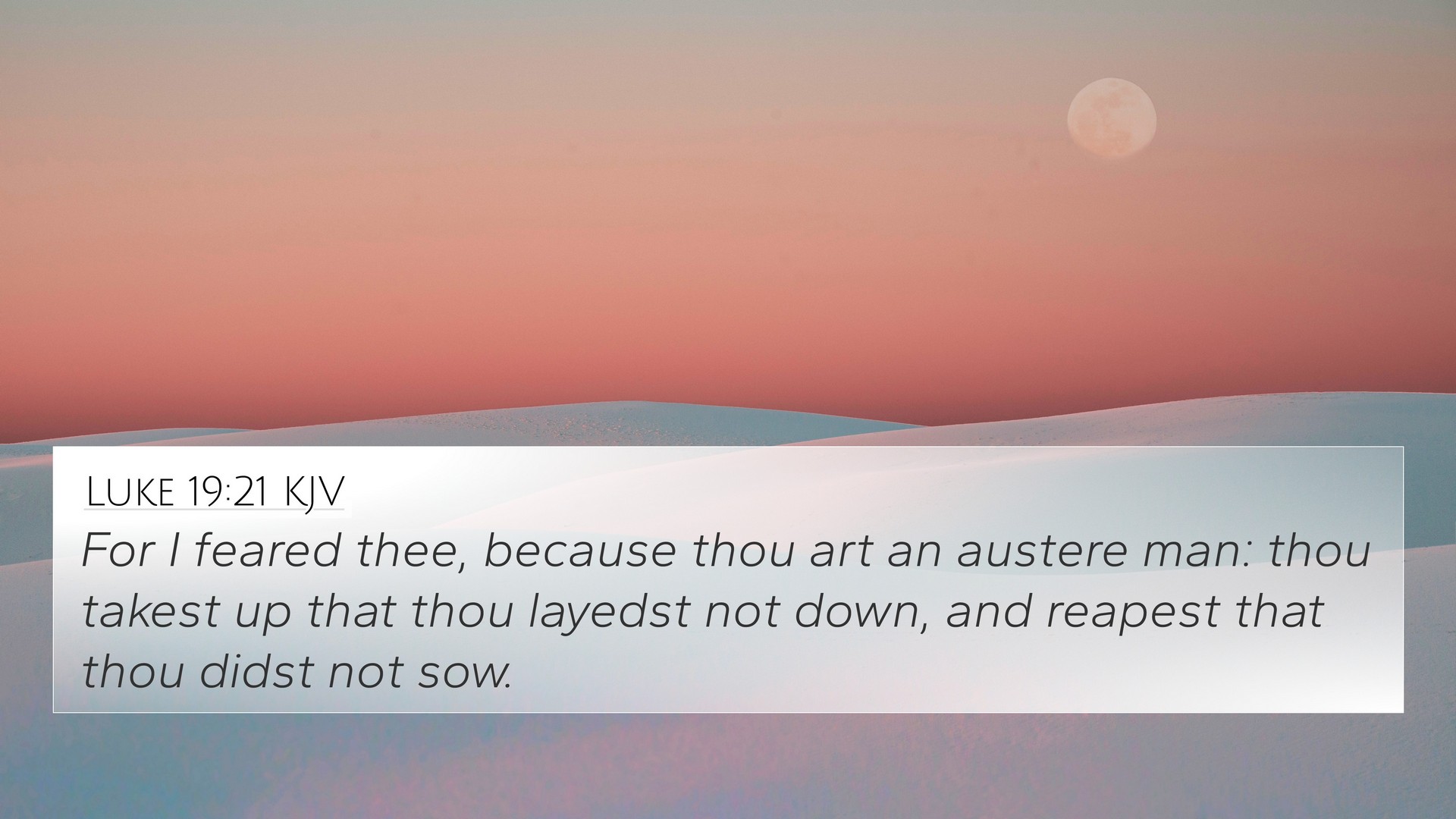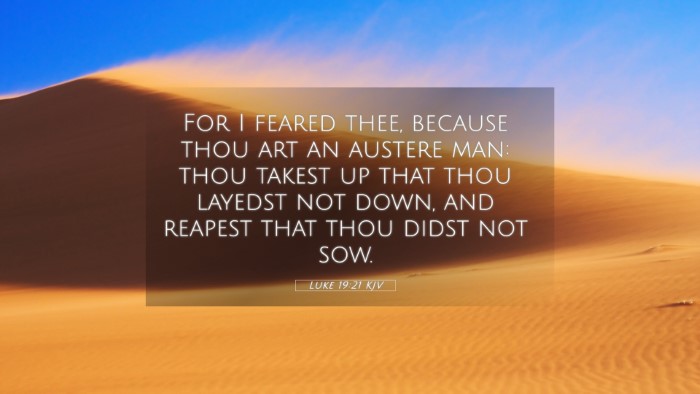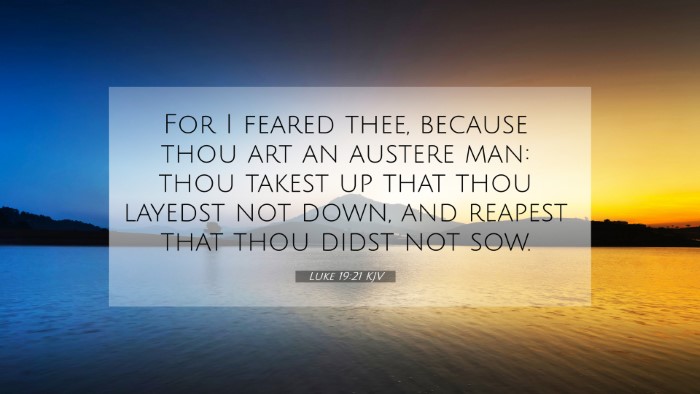This section features a detailed cross-reference designed to enrich your understanding of the Scriptures.
Below, you will find carefully selected verses that echo the themes and teachings related to Luke 19:21 KJV. Click on any image to explore detailed analyses of related Bible verses and uncover deeper theological insights.
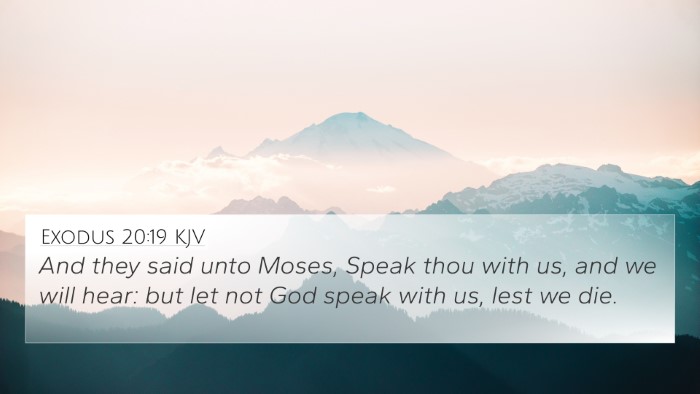 Exodus 20:19 (KJV) »
Exodus 20:19 (KJV) »
And they said unto Moses, Speak thou with us, and we will hear: but let not God speak with us, lest we die.
 1 John 4:18 (KJV) »
1 John 4:18 (KJV) »
There is no fear in love; but perfect love casteth out fear: because fear hath torment. He that feareth is not made perfect in love.
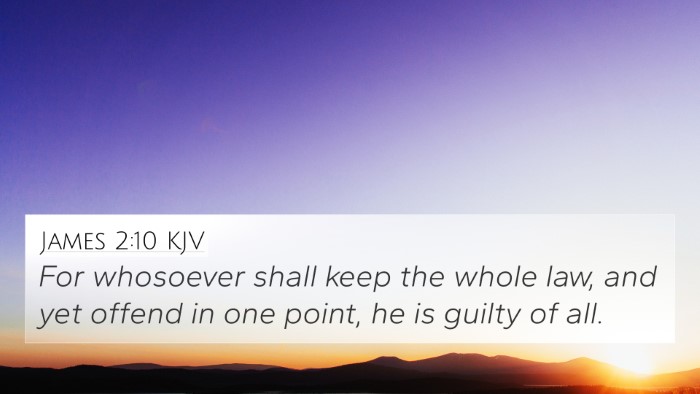 James 2:10 (KJV) »
James 2:10 (KJV) »
For whosoever shall keep the whole law, and yet offend in one point, he is guilty of all.
 2 Timothy 1:7 (KJV) »
2 Timothy 1:7 (KJV) »
For God hath not given us the spirit of fear; but of power, and of love, and of a sound mind.
 Romans 8:7 (KJV) »
Romans 8:7 (KJV) »
Because the carnal mind is enmity against God: for it is not subject to the law of God, neither indeed can be.
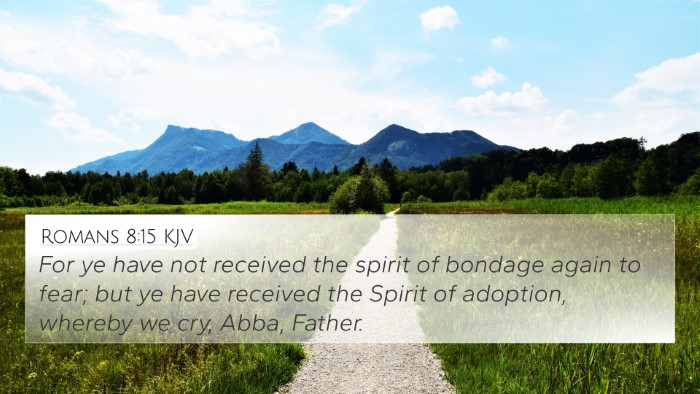 Romans 8:15 (KJV) »
Romans 8:15 (KJV) »
For ye have not received the spirit of bondage again to fear; but ye have received the Spirit of adoption, whereby we cry, Abba, Father.
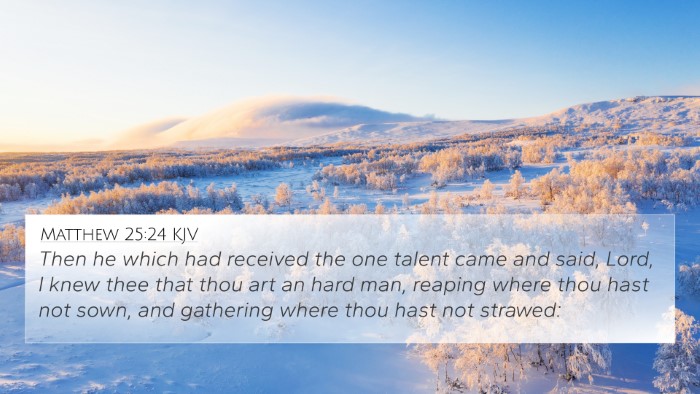 Matthew 25:24 (KJV) »
Matthew 25:24 (KJV) »
Then he which had received the one talent came and said, Lord, I knew thee that thou art an hard man, reaping where thou hast not sown, and gathering where thou hast not strawed:
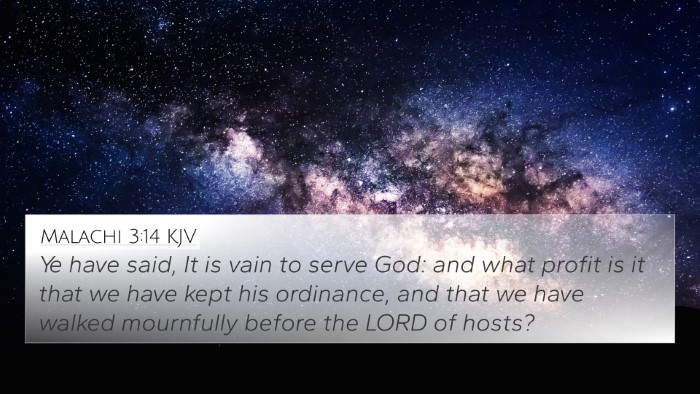 Malachi 3:14 (KJV) »
Malachi 3:14 (KJV) »
Ye have said, It is vain to serve God: and what profit is it that we have kept his ordinance, and that we have walked mournfully before the LORD of hosts?
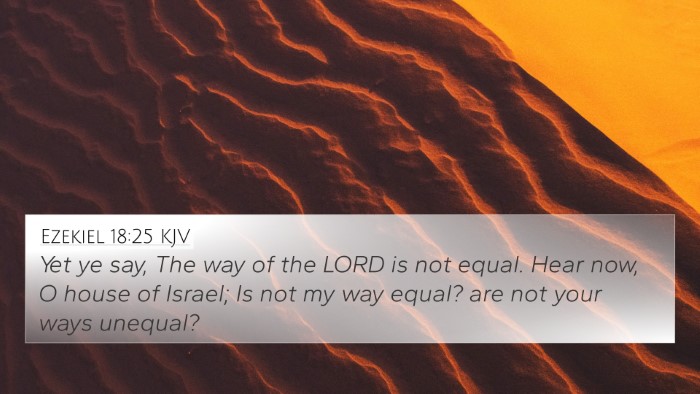 Ezekiel 18:25 (KJV) »
Ezekiel 18:25 (KJV) »
Yet ye say, The way of the LORD is not equal. Hear now, O house of Israel; Is not my way equal? are not your ways unequal?
 Job 21:14 (KJV) »
Job 21:14 (KJV) »
Therefore they say unto God, Depart from us; for we desire not the knowledge of thy ways.
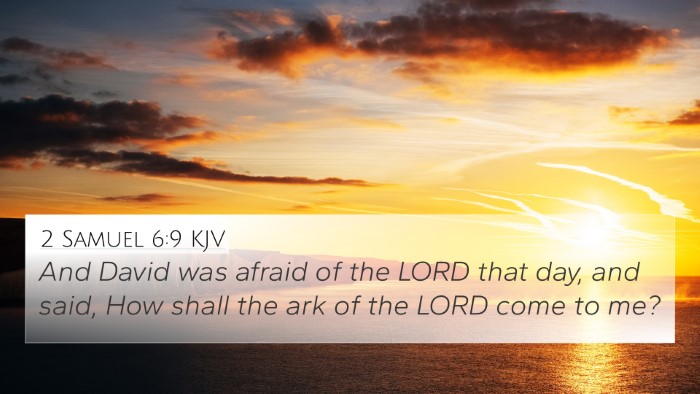 2 Samuel 6:9 (KJV) »
2 Samuel 6:9 (KJV) »
And David was afraid of the LORD that day, and said, How shall the ark of the LORD come to me?
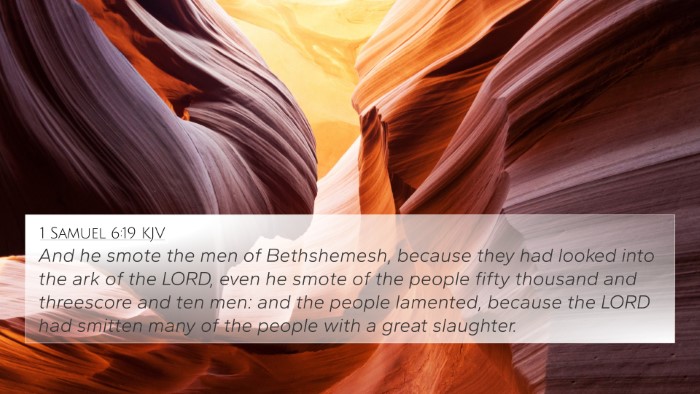 1 Samuel 6:19 (KJV) »
1 Samuel 6:19 (KJV) »
And he smote the men of Bethshemesh, because they had looked into the ark of the LORD, even he smote of the people fifty thousand and threescore and ten men: and the people lamented, because the LORD had smitten many of the people with a great slaughter.
 1 Samuel 12:20 (KJV) »
1 Samuel 12:20 (KJV) »
And Samuel said unto the people, Fear not: ye have done all this wickedness: yet turn not aside from following the LORD, but serve the LORD with all your heart;
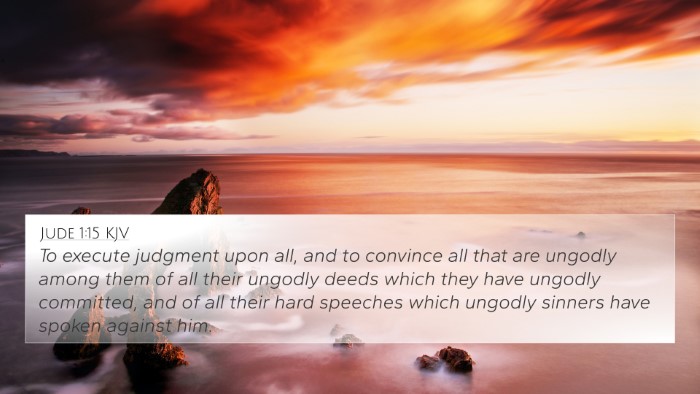 Jude 1:15 (KJV) »
Jude 1:15 (KJV) »
To execute judgment upon all, and to convince all that are ungodly among them of all their ungodly deeds which they have ungodly committed, and of all their hard speeches which ungodly sinners have spoken against him.
